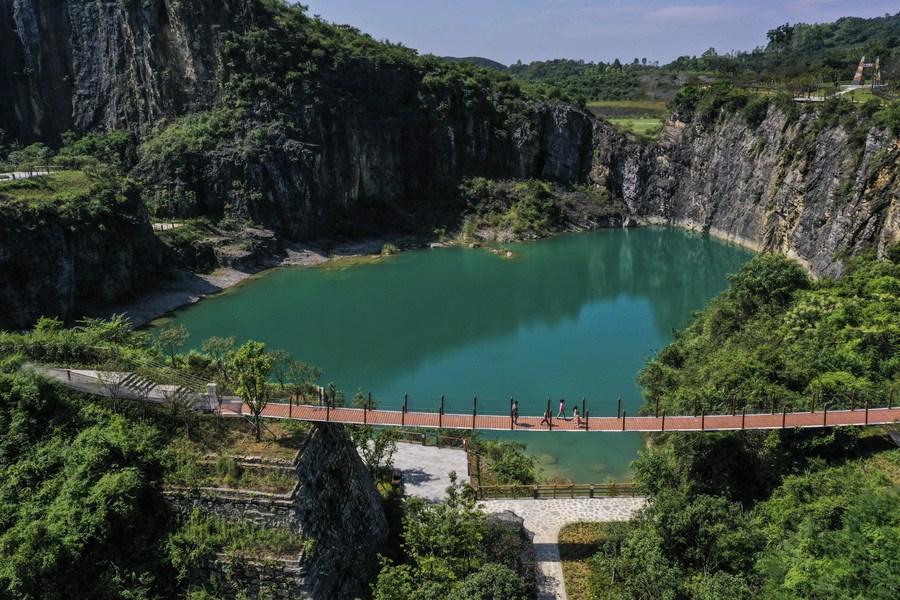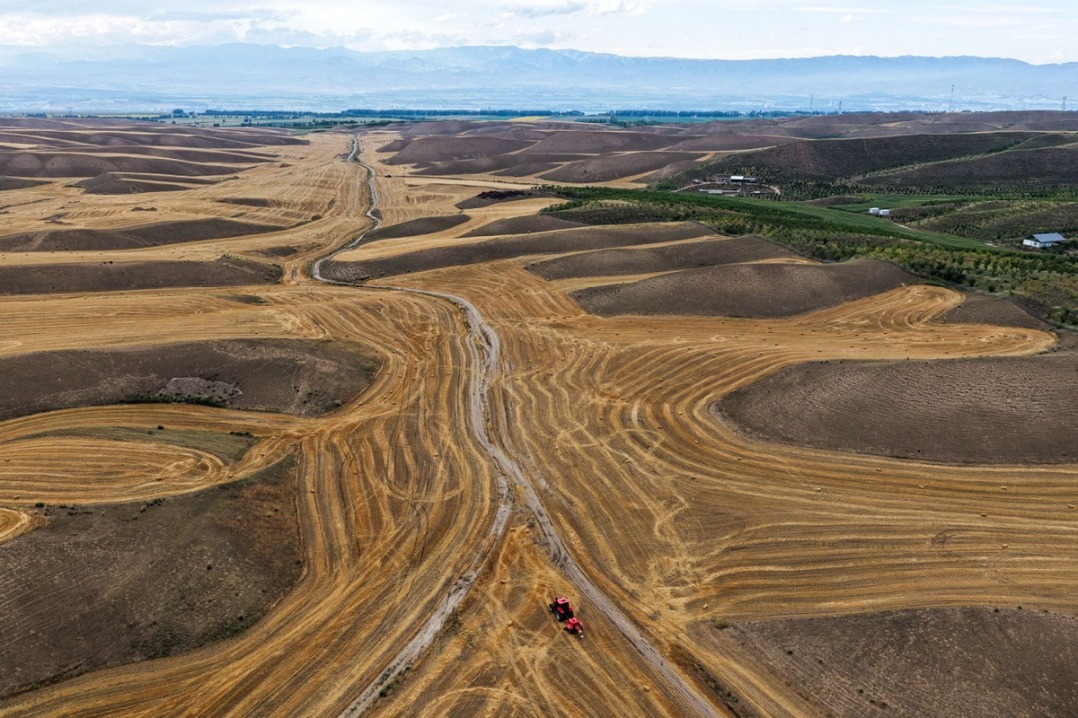Nation committed to green development


Enhancing the ecological environment by fostering green and low-carbon growth was among the highlights of the Government Work Report delivered on Saturday by Premier Li Keqiang at the fifth session of the 13th National People's Congress.
Li emphasized that China will improve its overall ecological and environmental governance, and that greater measures will be made to prevent and regulate air, soil and water pollution.
The premier's message is bliss for a world eager to counter climate change. Li said China will continue to work toward achieving carbon neutrality and a peak in carbon dioxide emissions as planned. He also said that the development and application of green and low-carbon technologies will be encouraged, while projects with high energy consumption and carbon emissions will be restricted.
His statement on the subject may have been brief, but the matter is crucial. With the guidelines, the two sessions annual meetings of China's top legislative and political advisory bodies will go on to specify specific goals for promoting green growth-from industrial policies and rural waste disposal to national planning and outbound investments.
It is worth noting that China, the largest developing country, relies substantially on coal, particularly for power generation. China is one of the top importers of Indonesia's coal.
However, China has made significant progress in the pursuit of a green economy in recent years.
Among the nation's accomplishments are an increase in the number of electric vehicles sold in China, as well as the sale of Chinese-brand electric vehicles all over the world, including in Indonesia.
As a law professional, I am particularly intrigued by the fact that the notion of green economy is more than simply a buzzword in speeches and the corporate world. The Chinese legal system is particularly supportive of the green development philosophy.
One of the most significant examples is Article 9 of the Chinese Civil Code, which states that "when executing a civil activity, a person of civil law should behave in a manner that aids resource conservation and environmental preservation".
This clause is remarkable in that it includes "resource conservation" and "environmental preservation" among other essential civil law values like equality before the law, justice, good faith and good morals.
In fact, the National People's Congress, China's top legislature, has over the decades promulgated a number of laws that encourage the green economy in addition to the Civil Code. These include the Grassland Law, Forestry Law, Environmental Protection Law, Air Pollution Prevention and Control Law, Marine Environment Protection Law, Water Pollution Prevention and Control Law, Soil Pollution Prevention and Control Law and Environmental Noise Pollution Prevention and Control Law.
The State Council as well as local governments have also adopted more detailed rules on supervision and implementation, including the Measures for the Administration of Legal Disclosure of Enterprise Environmental Information. All of these have formed a network of guarantee for ecological civilization to take root and expand in all aspects of the world's second-largest economy.
China's success in green bond financing and environmental, social and governance reporting is also noteworthy.
As a result, it should be concluded that China is and will be committed to environmentally friendly economic development and lowering carbon emissions.
Yet the developing giant still has a long way to go to achieve its carbon reduction and peaking goals. Tackling challenges such as air and soil pollution, desertification and water scarcity will take more effort and time.
With new ecological plans in the making via the two sessions, China is expected to play a leadership role in reducing carbon emissions, because it is resolute and persistent in its pursuit of a green economy and growth.
Moreover, every aspect of the economic agenda is to observe rules and regulations while the country also heads to building a modern society governed with rule of law. It is expected that the implementation of various "green" laws and regulations in China will help overcome the environmental obstacles one by one.
Under the leadership of a strong Communist Party of China and high-quality leaders at all levels of government, China will triumph in the war against pollution and exemplify sustainable growth.
The author is an adviser to the Center for Indonesia-China Studies and an associate at the law firm Christian Teo & Partners.
The views do not necessarily reflect those of China Daily.
- China's Hebei restores power, roads after heavy rains
- Global influencers explore beer city at Qingdao WCNA
- Heavy rainstorm leaves three dead, four missing in Hebei resort
- Ethnic integration on the grassland
- China renews alerts for rainstorms, high temperature
- Beijing restores power, communications, water-supply to flood-hit villages





































